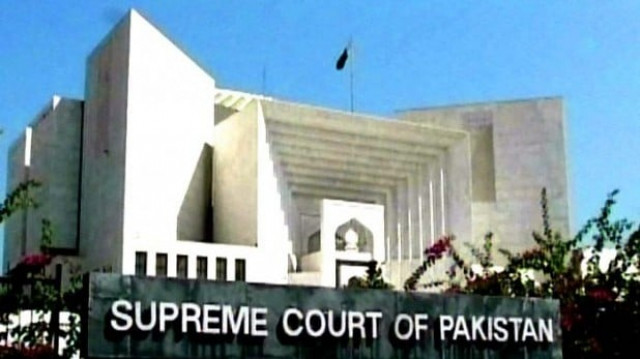‘Parliament mandated to amend constitution’

‘Parliament mandated to amend constitution’
Parliament is a sovereign and supreme institution and commands full powers to introduce amendments in the Constitution, he argued, adding that constitutional amendments could be made in the constitution with a two-thirds majority in the parliament.
He also contended that the Parliamentary Committee on Constitutional Reforms (PCCR) never intended to change the “basic structure” of the 1973 Constitution. “There are no basic features or structure in the Constitution of Pakistan except some important features,” he maintained before the 17-member full bench of the SC headed by Justice Iftikhar Muhammad Chaudhry.
“The word ‘basic’ has been borrowed from the Indian Constitution as a necessity of law,” he contended.
There are many features of the Constitution: Islamic provisions, federalism, fundamental rights, bicameral legislature etc., he explained.
At this point, the CJP put a question to Senator Wasim Sajjad: “Do you believe that independence of the judiciary was also a feature of the 1973 Constitution? The counsel replied, rather hesitatingly, “Yes, it was.” Talking about the word “basic” Justice Asif Saeed Khosa said an Indian judge did not agree with the basic fundamental structure of the Constitution while the PCCR itself used the word “basic structure” in paragraph three of the report.
The CJP said that people desperately yearn for an independent judiciary while judges have multiplied their plight by not complying with the sayings of the ‘liberator’ – Quaid-i-Azam.
Wasim Sajjad said that the judiciary was a creation of the Constitution, which takes oath to abide by the Constitution under all circumstances; therefore “Judiciary cannot term void any article of the Constitution.”
During the course of the proceedings, Justice Khalil-ur-Rahman Ramday observed that the elected representatives of 170 million people failed to restore the deposed judiciary and they only acted when public pressure was mounted.
Justice Mian Saqib Nisar interjected at this juncture with the remark: “Nothing is final in this world without the supremacy of constitution or independence of judiciary.” He was of the view that the general elections of 2008 had not been contested on the promise of introducing amendments in the basic features of 1973 Constitution.
In support of his arguments, Wasim Sajjad made reference to Quaid’s speech of August 11, 1947 in which he (Quaid) had said that parliament was supreme and sovereign.
Then Justice Khilji Arif Hussain said that people knew in 1956, 1962 and 1970 general elections that they were voting for the constituent assemblies.
Wasim Sajjad also rejected Hafeez Pirzada’s argument that only a constituent assembly can amend the Constitution.
After the case proceedings, Wasim Sajjad told The Express Tribune that “On Tuesday I will give references of British courts judgments, Mujeeb Pirzada Case, Sabir Shah Case, SCP Lawyers Case, SCP Hakim Khan Case as well as the references of some Indian courts’ judgments.”
Published in The Express Tribune, July 27th, 2010.



















COMMENTS
Comments are moderated and generally will be posted if they are on-topic and not abusive.
For more information, please see our Comments FAQ